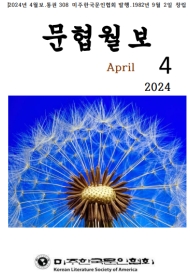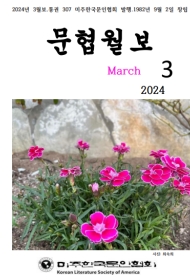Is Ignorance Bliss?
===================
Wolran Kim
Jan. 2012
Where ignorance is bliss, this is applicable to the prisoners in Plato’s allegory of the cave, because ignorance of the truth is more convenient for them. Knowing and not knowing is the same difference as black and white. People know as much as they can see. We would not know even if we see if we don’t have any information. Knowledge is divided into levels of knowledge and gossip to me. Knowledge brings a much bigger profit in the level of intelligence in terms of material or human relations. Consequently, it is better to be doing not knowing in a gossip dimension because usually gossip creates trouble.
Intellectual knowledge is a way to improve the quality of life as “Knowing is power.” Most of the time I want to know in the level of knowledge and see that those things are useful for visible results or are absolute tools of better information. Also, interest and joy bring excitement to the desire to know. On the contrary, I don’t want to know if there would be no visible result or interest.
The factors which make me want to know are based on the value and interest. I feel positive, fruitful, and happy whenever I get to know what I wanted to know. The dictionary meaning of happiness is satisfying and joyful from desires being met. It also means a psychological state of great emotion and ration with hope and without anxiety. The condition can be prescribed subjectively or objectively. Happiness comes from a satisfied heart full of joy, fun, laughter, rewards, value, calmness, stability, motivation, and hope.
In philosophy, happiness is interpreted and broken down into a very complex and strict sense. Subjective and objective happiness may differ slightly or significantly depending on personal sense of values, roles, responsibilities, nature, and environment. Aristotle said that the best goodness which the human pursues is happiness. Complex meanings of happiness often are depicted through the various proverbs and sayings; a Japanese proverb is ‘People’s happiness and sadness may not be known until they are covered up in the coffin. ‘And a Korean proverb is ’The irony of fate.’ — Inscrutable are the ways of Heaven or an evil that may sometimes turn out to be a blessing in disguise.
The meaning of freedom is sometimes used as opposed to forced and sometimes as opposed to the inevitable. Aristotle was distinct that the human acts to intentional and unintentional acts. Thomas Aquinas’ concept of freedom dominated the medieval feudal society. Aquinas asserts that all human thinking and behavior is expected and in accordance with the will of God, but freedom is granted to humans because God will also be free. Rousseau said that freedom only belongs to individuals because it is an attribute in the natural state of humans. According to Marxism, the freedom considered depends on an objective necessity in nature and society—in relation to human relations about objective legitimacy.
We do not realize what ordinary freedom means to us until it is taken by force. We would be really nervous and uncomfortable if we had to follow someone else’s command suddenly in our daily lives with tasks such as eating and sleeping. In the common sense, happiness is in the freedom and unhappiness is outside of freedom. But the pursuit of happiness may be possible without limit depending on the mindset. Happiness is possible to adjust in accordance with the complex and ever-changing minds of humans. For this reason, there is optimism and pessimism.
In general, freedom means a natural status without any domination or binding from the outside or inside, and that one can do what they want to. But it is difficult to build a conclusion philosophically. Most people manage their everyday lives freely except in a communist society, but the strict regulations always exist and laws are governed as members of society. Sartre said that freedom is just punishment and only engagement and union are real freedom. Since Freud, science does not recognize human beings as having free will. There is no man who lives and dies freely. Therefore, strictly nobody is free but the freedom during their life must bear the punishment of responsibility and choice.
Generally freedom and happiness are directly proportional. Free people are happier than prisoners by any common sense. The fish is free in the fish bowl. The fish bowl is the expectation of God and the freedom of the fish is the free will of humans. Happiness is like air. It is everywhere but people may not realize it until they are losing it, just like freedom.
===================
Wolran Kim
Jan. 2012
Where ignorance is bliss, this is applicable to the prisoners in Plato’s allegory of the cave, because ignorance of the truth is more convenient for them. Knowing and not knowing is the same difference as black and white. People know as much as they can see. We would not know even if we see if we don’t have any information. Knowledge is divided into levels of knowledge and gossip to me. Knowledge brings a much bigger profit in the level of intelligence in terms of material or human relations. Consequently, it is better to be doing not knowing in a gossip dimension because usually gossip creates trouble.
Intellectual knowledge is a way to improve the quality of life as “Knowing is power.” Most of the time I want to know in the level of knowledge and see that those things are useful for visible results or are absolute tools of better information. Also, interest and joy bring excitement to the desire to know. On the contrary, I don’t want to know if there would be no visible result or interest.
The factors which make me want to know are based on the value and interest. I feel positive, fruitful, and happy whenever I get to know what I wanted to know. The dictionary meaning of happiness is satisfying and joyful from desires being met. It also means a psychological state of great emotion and ration with hope and without anxiety. The condition can be prescribed subjectively or objectively. Happiness comes from a satisfied heart full of joy, fun, laughter, rewards, value, calmness, stability, motivation, and hope.
In philosophy, happiness is interpreted and broken down into a very complex and strict sense. Subjective and objective happiness may differ slightly or significantly depending on personal sense of values, roles, responsibilities, nature, and environment. Aristotle said that the best goodness which the human pursues is happiness. Complex meanings of happiness often are depicted through the various proverbs and sayings; a Japanese proverb is ‘People’s happiness and sadness may not be known until they are covered up in the coffin. ‘And a Korean proverb is ’The irony of fate.’ — Inscrutable are the ways of Heaven or an evil that may sometimes turn out to be a blessing in disguise.
The meaning of freedom is sometimes used as opposed to forced and sometimes as opposed to the inevitable. Aristotle was distinct that the human acts to intentional and unintentional acts. Thomas Aquinas’ concept of freedom dominated the medieval feudal society. Aquinas asserts that all human thinking and behavior is expected and in accordance with the will of God, but freedom is granted to humans because God will also be free. Rousseau said that freedom only belongs to individuals because it is an attribute in the natural state of humans. According to Marxism, the freedom considered depends on an objective necessity in nature and society—in relation to human relations about objective legitimacy.
We do not realize what ordinary freedom means to us until it is taken by force. We would be really nervous and uncomfortable if we had to follow someone else’s command suddenly in our daily lives with tasks such as eating and sleeping. In the common sense, happiness is in the freedom and unhappiness is outside of freedom. But the pursuit of happiness may be possible without limit depending on the mindset. Happiness is possible to adjust in accordance with the complex and ever-changing minds of humans. For this reason, there is optimism and pessimism.
In general, freedom means a natural status without any domination or binding from the outside or inside, and that one can do what they want to. But it is difficult to build a conclusion philosophically. Most people manage their everyday lives freely except in a communist society, but the strict regulations always exist and laws are governed as members of society. Sartre said that freedom is just punishment and only engagement and union are real freedom. Since Freud, science does not recognize human beings as having free will. There is no man who lives and dies freely. Therefore, strictly nobody is free but the freedom during their life must bear the punishment of responsibility and choice.
Generally freedom and happiness are directly proportional. Free people are happier than prisoners by any common sense. The fish is free in the fish bowl. The fish bowl is the expectation of God and the freedom of the fish is the free will of humans. Happiness is like air. It is everywhere but people may not realize it until they are losing it, just like freedom.













